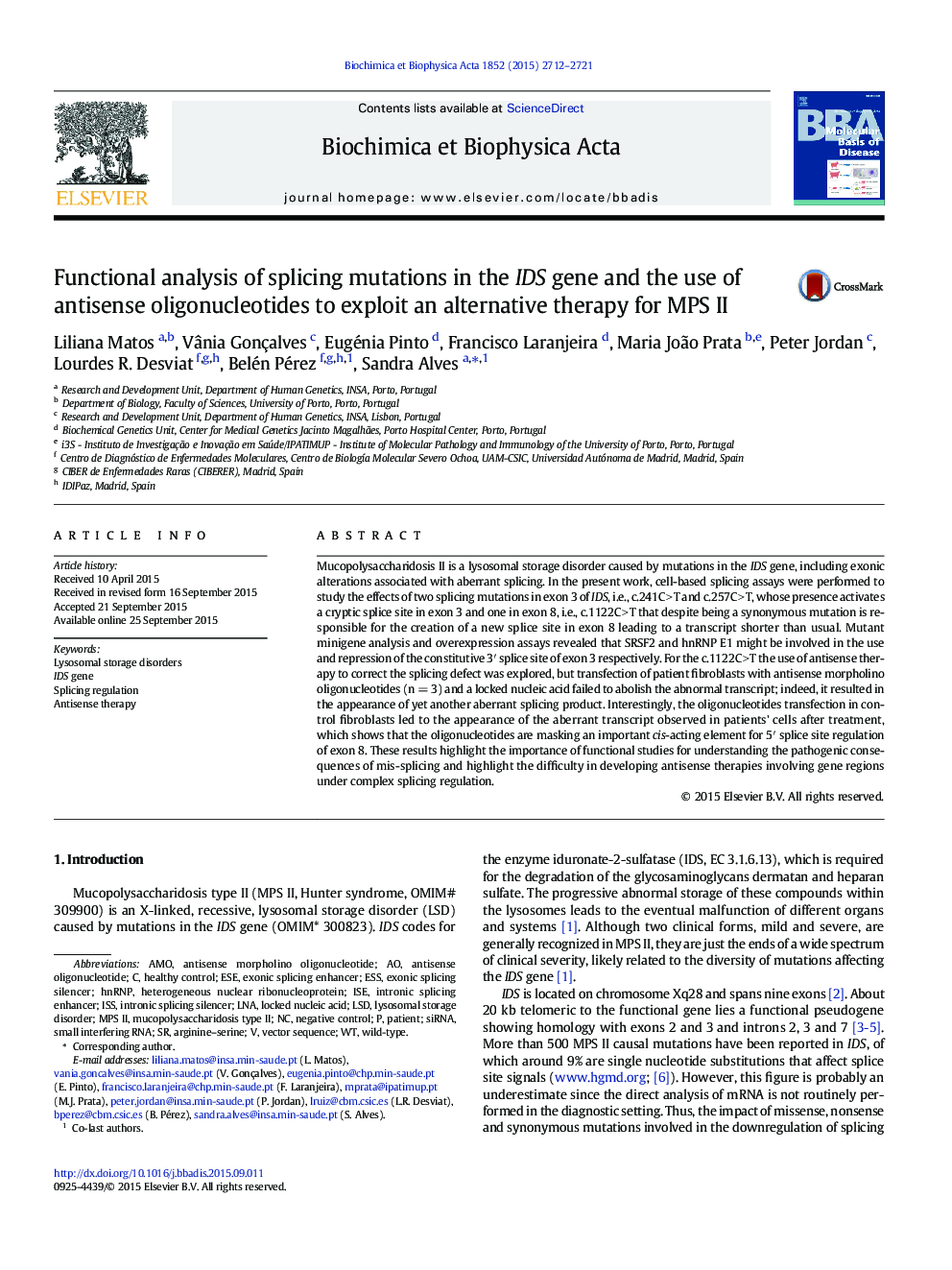| Article ID | Journal | Published Year | Pages | File Type |
|---|---|---|---|---|
| 1904511 | Biochimica et Biophysica Acta (BBA) - Molecular Basis of Disease | 2015 | 10 Pages |
•Pathogenic consequences of splicing mutations affecting MPS II patients•SRSF2 and hnRNPE1 protein factors might be involved in IDS exon 3 splicing regulation.•Antisense oligonucleotide correction attempt of the synonymous mutation c.1122C > T•Four different AOs fail to recover exon 8 normal splicing pattern.•AO therapy remains a challenge in regions under complex splicing regulation.
ABSTRACTMucopolysaccharidosis II is a lysosomal storage disorder caused by mutations in the IDS gene, including exonic alterations associated with aberrant splicing. In the present work, cell-based splicing assays were performed to study the effects of two splicing mutations in exon 3 of IDS, i.e., c.241C > T and c.257C > T, whose presence activates a cryptic splice site in exon 3 and one in exon 8, i.e., c.1122C > T that despite being a synonymous mutation is responsible for the creation of a new splice site in exon 8 leading to a transcript shorter than usual. Mutant minigene analysis and overexpression assays revealed that SRSF2 and hnRNP E1 might be involved in the use and repression of the constitutive 3′ splice site of exon 3 respectively. For the c.1122C > T the use of antisense therapy to correct the splicing defect was explored, but transfection of patient fibroblasts with antisense morpholino oligonucleotides (n = 3) and a locked nucleic acid failed to abolish the abnormal transcript; indeed, it resulted in the appearance of yet another aberrant splicing product. Interestingly, the oligonucleotides transfection in control fibroblasts led to the appearance of the aberrant transcript observed in patients' cells after treatment, which shows that the oligonucleotides are masking an important cis-acting element for 5′ splice site regulation of exon 8. These results highlight the importance of functional studies for understanding the pathogenic consequences of mis-splicing and highlight the difficulty in developing antisense therapies involving gene regions under complex splicing regulation.
